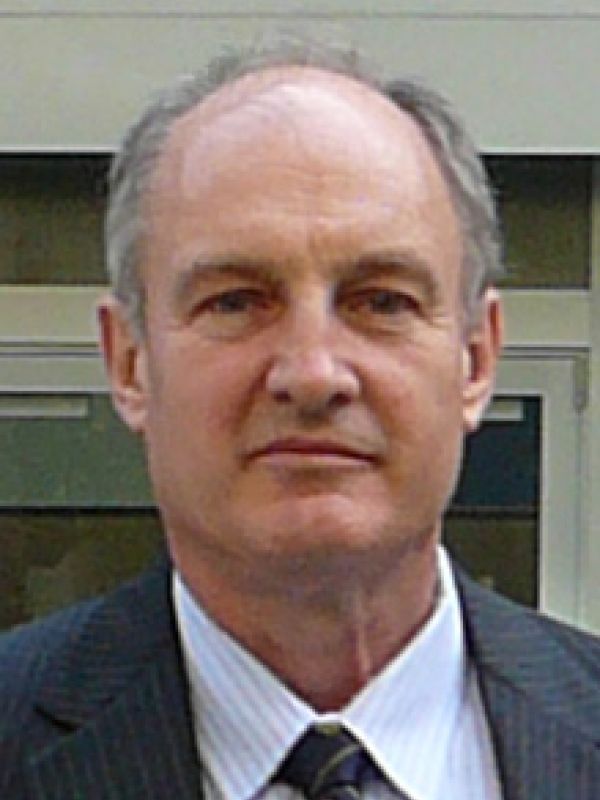
Vyacheslav Samoshin
D.Sci, Moscow State University, USSR, 1991
PhD, Moscow State University, USSR, 1982
MS, Moscow State University, USSR, 1974
Chemical education, like any other professional education, has two broad purposes: an education of the specialists in the area of (chemical) discipline, and a general development of personality through its professional growth. The undergraduate chemistry course teaches pre-med and pre-pharmacy students to work systematically, to organize and systematically memorize a large amount of information, to think logically about complicated problems, to analyze a multifactor problem, and to make a reasonable decision while given an insufficient information, etc.
This is especially true about the organic chemistry course, which has an exceptionally unified structure and logic. When lecturing, I emphasize a highly logical and systematic nature of the chemical knowledge. At the same time, I do not avoid a demonstration of flaws and weaknesses in chemical theories. This helps to show a live, practical nature of chemistry, and to convince students that there is nothing supernatural or incomprehensible in this science.
I consider the process of teaching as an everlasting interaction with students, implying a constant mutual adjustment of a professor and an audience. Therefore I encourage questions and discussions at the lecture, and especially at the study sessions. The feedback from classroom evaluations helps very much in this process. Addressing students' concerns, I have significantly improved my teaching style.
I like to use modern presentation tools to visualize and illustrate some difficult chemical concepts, especially when talking about 3D-chemistry or spectroscopy. However, I try to write down or draw on black/whiteboard as much as reasonable. I explain and demonstrate thoroughly the drawing of formulas and writing of the chemical reactions, so that the students follow me and gain skills in doing this. This exercise is important, because a simple inability to do the chemical writing and drawing properly is often one of the major reasons for a failure in the course.
The demonstration and explanation of problem solving is an important part of the lecture course. Unfortunately, there is always not enough time for it. To a great extent, this deficiency is compensated by the Peer-led Workshops. Besides that, when time permits I offer the study sessions devoted to difficult concepts and problem solving, especially before the final exam. I try to make the study sessions informal, and to help students to work through the problems instead of just giving them a ready explanation or an answer. The same approach I use during the office hours. I give a hint instead of an answer, and provide an explanation, if necessary, only when a student has done her/his best trying to solve a problem.
A diversity of an audience is the greatest challenge for a teacher. In any class there is a fraction of students that are eager to study, because they like to gain knowledge and exercise their brain, and/or they take their duties seriously. There is always a fraction of students who sleep through the lectures and try to slip through the course. And there is a whole spectrum between these extremes. I always try to make my course challenging and labor demanding enough for the best students of the class. At the same time, I give enough opportunity for the not so gifted, but honestly working students to earn a decent grade. Technically it could be achieved in various ways: for example by giving "bonus" problems or questions at the tests that allow to improve a score, by rewarding answers (sometimes even good questions) during discussions at the lectures, etc. This creates an additional motivation, refreshes an attention to the lecture, and makes students work more and think more.
The graduate/advanced courses allow me to be much more flexible in teaching. I combine the lecturing with problem solving, with an experimental work on instruments, with student reports on recent publications and a discussion of relevant topics, with various home assignments, and with a preparation of a final report in the format of a research/review article or a research proposal, which has to be presented and defended in the class. The proportions of these components vary depending on the particular subject of the course, the size of the class, even personalities of students. Ideally, the purpose of an advanced course is to prepare students for an independent research and a presentation of results. I try to make the relations in the advanced class more active and interactive, similar to the relations within a research group.
A supervision of the undergraduate and graduate students' research was always an immanent element of my research activity. A research conducted jointly by a professor and a student is the highest form of scientific education, when not only concepts, but also all the details of experimental know-how are individually transferred from a master to an apprentice (and sometimes - the other way around) or jointly discovered. This level of a collaborative education is vitally important for the very existence of chemical science. The best way to organize and perform this type of education is to have a few generations of the chemistry students and researchers working together in the same lab. This way the chemical skills and knowledge are most efficiently transferred to the benefit of all participants.
Stereochemistry of organic compounds; Conformational analysis; Molecular switches; Asymmetric synthesis; Synthesis and studies of bioactive carbohydrate mimetics.


